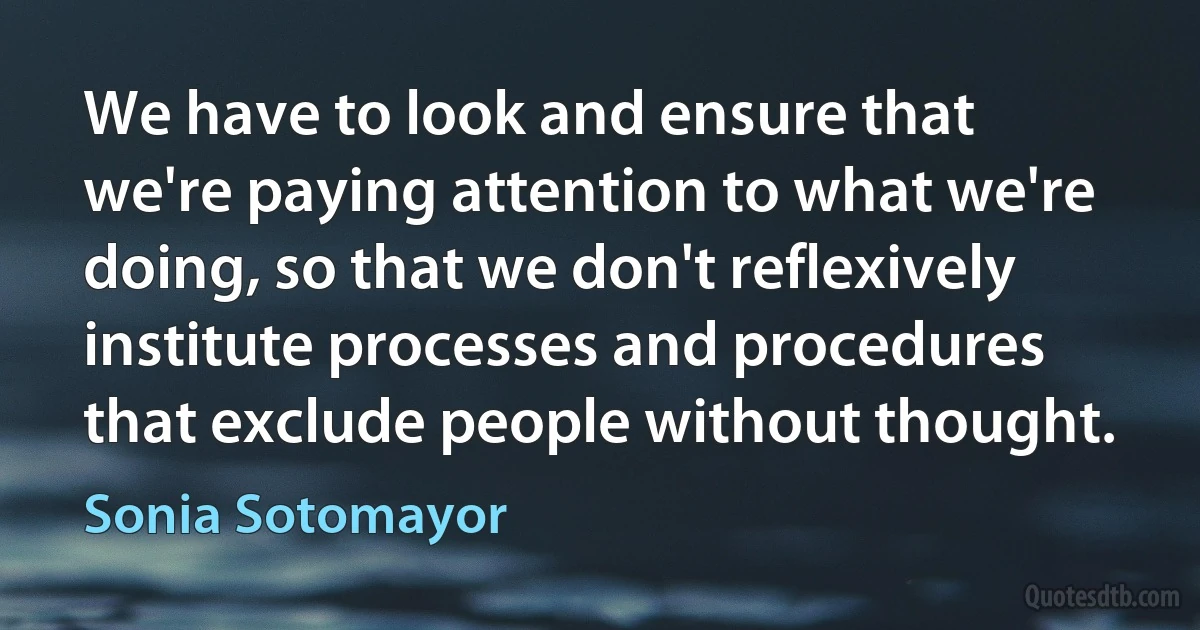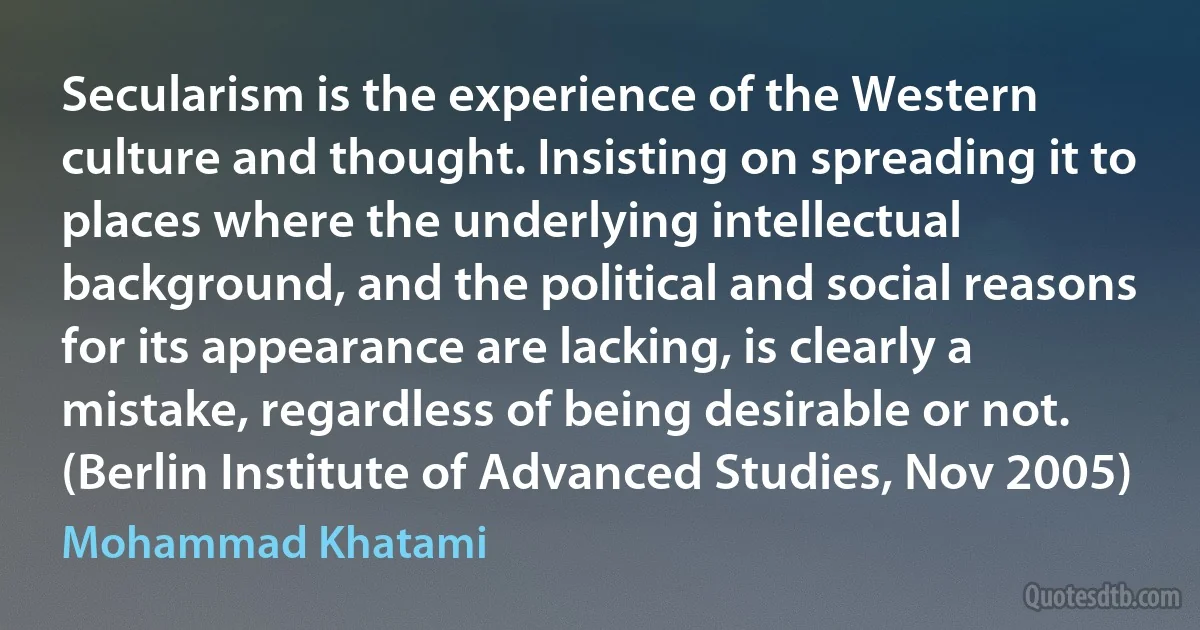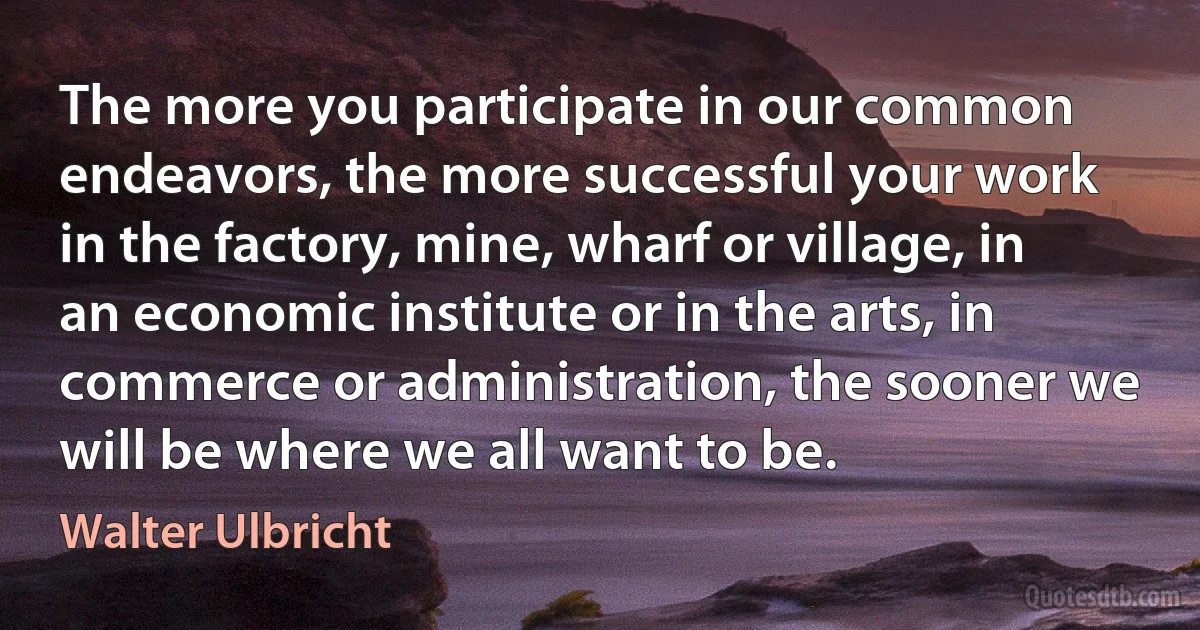Institute Quotes - page 6
I'm reading a biography of St John Baptist de la Salle - Extraordinary what educational insights and experiments have existed already - and what has been forgotten!. That reformatory, for instance, which he founded on the most amazing principles somewhere around 1680...The young delinquents were detained in solitary confinement to begin with, being promoted later..to community life..But in their single cells they were given flowers and plants to cultivate and singing birds to breed! The prisoners took their meals together with the Brothers, and each of the boys in solitary confinement was entrusted to one particular Brother...The Jansenists were bitter opponents of the Brothers, for in all his schools de la Salle laid great stress on frequent Communion..They did their best to oppose him personally and to hinder his work. The French Revolution wrecked his Institute, some of the Brothers were executed, others emigrated.

Ida Friederike Görres
The California Institute of Technology (CalTech) rose to prominence when Robert A. Millikan was called to Pasadena in 1921 as new university president. Millikan was known for his far-reaching ambitions both as a physicist and as a science manager. He put CalTech on the map as a top university by inviting the world's most renowned scientists for guest lectures and by hiring internationally distinguished scientists to new chairs. With theoretical physicist Paul Epstein, a pupil of Sommerfeld's, Millikan brought modern atomic physics to CalTech in the early 1920s, and with Kármán, he pursued the same strategy a few years later in order to lure the best available aerodynamicist from Europe to Pasadena.

Robert Andrews Millikan
Coal being then the chief source of power, much industrial reconstruction depended on there being a plentiful and cheap supply. But the newly nationalized industry was not doing well. Productivity failed to increase in step with increases in mechanization. Men were leaving the mines in large numbers for more attractive opportunities in the factories. Among those who remained, absenteeism averaged 20 percent. Labor disputes were frequent despite improved conditions of employment. Some time earlier the National Coal Board had asked the Institute to make a comparative study of a high producing, high morale mine and a low producing, low morale, but otherwise equivalent mine.

Eric Trist
The socio-technical concept arose in conjunction with the first of several field projects undertaken by the Tavistock Institute in the coal-mining industry in Britain. The time (1949) was that of the postwar reconstruction of industry in relation to which the Institute had two action research projects.(2) One project was concerned with group relations in depth at all levels (including the management/labor interface) in a single organization - an engineering company in the private sector. The other project focused on the diffusion of innovative work practices and organizational arrangements that did not require major capital expenditure but which gave promise of raising productivity. The former project represented the first comprehensive application in an industrial setting of the socio-clinical ideas concerning groups being developed at the Tavistock.

Eric Trist
I was in the enormous and almost deserted square in front of the Great People's Study House-all open spaces in Pyongyang remain deserted unless filled with parades of hundreds of thousands of human automata-when a young Korean slid surreptitiously up to me and asked, "Do you speak English?"
An electric moment: for in North Korea, unsupervised contact between a Korean and a foreigner is utterly unthinkable, as unthinkable as shouting, "Down with Big Brother!"
"Yes," I replied.
"I am a student at the Foreign Languages Institute. Reading Dickens and Shakespeare is the greatest, the only pleasure of my life."
It was the most searing communication I have ever received in my life. We parted immediately afterward and of course will never meet again. For him, Dickens and Shakespeare (which the regime permitted him to read with quite other ends in view) guaranteed the possibility not just of freedom but of truly human life itself.

Anthony Daniels (psychiatrist)
The health service, they're very worried about a collapse in the number of EU migrants coming here. Social care would be in a terrible position.... finance, education. The reality is that business, the CBI, the Institute of Directors, but also health, education and social care; they say that they need these European migrants and we have to listen to them.

Diane Abbott
The further development of the open system thinking propounded by von Bertalanffy and Prigogine requires us to characterize the environments within which open systems are functioning. Four levels of environmental organization can be distinguished in terms of their causal texturing...
Coming out from an academic cocoon to work at the Tavistock Institute in London I found myself trying to comprehend the behavior of very large organizations in the face of very devastating winds of change... The conceptual developments in that paper have continued to play a considerable role in my subsequent thinking.

Fred Emery
Collections of all twelve pitch classes can be differentiated from one another only by assigning an order to the pitch classes or by partitioning them into mutually exclusive sub-collections. The ordering principle is the basis of the twelve-tone system formulated by Schoenberg, the partitioning principle the basis of the system formulated around the same time by Hauer. In Schoenberg's compositional practice, however, the concept of a segmental pitch-class content is represented as well, as a basis for the association of paired inversionally related set forms. On the relation between Schoenberg and Hauer see Bryan R. Simms, "Who First Composed Twelve-Tone Music, Schoenberg or Hauer?" Journal of the Arnold Schoenberg Institute X/2 (November 1987).

George Perle
Here is a book so dull that a whirling dervish could read himself to sleep with it. If you were to recite even a single page in the open air, birds would fall out of the sky and dogs drop dead. There is no author's name on the title page, merely a modest line of italic type advising us that Leonid Ilyich Brezhnev's 'short biography' has been composed 'by the Institute of Marxism-Leninism, CPSU Central Committee.' This is the one statement in the entire opus which is undeniably true. Only an Institute could write like this.

Clive James
It has taken biologists some 230 years to identify and describe three quarters of a million insects if there are indeed at least thirty million, as Erwin (Terry Erwin, the Smithsonian Institute) estimates, then, working as they have in the past, insect taxonomists have ten thousand years of employment ahead of them. Ghilean Prance, director of the Botanical Gardens in Kew, estimates that a complete list of plants in the Americas would occupy taxonomists for four centuries, again working at historical rates.

Richard Leakey



